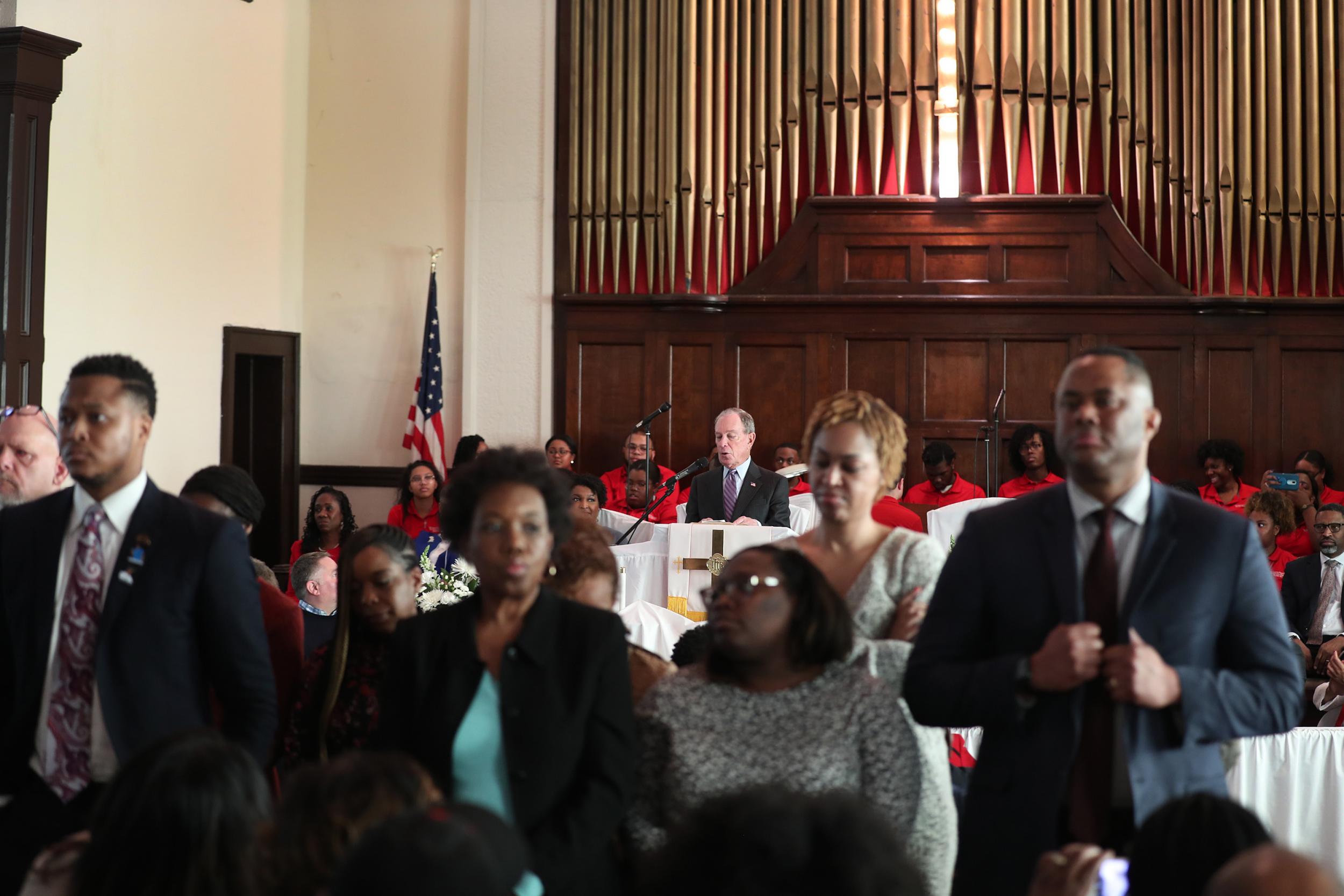Michael Bloomberg sees congregants turn their backs on him in historically black church in Selma
Billionaire candidate joins presidential hopefuls to recognise 55th anniversary of Bloody Sunday bridge-crossing in Alabama

Your support helps us to tell the story
From reproductive rights to climate change to Big Tech, The Independent is on the ground when the story is developing. Whether it's investigating the financials of Elon Musk's pro-Trump PAC or producing our latest documentary, 'The A Word', which shines a light on the American women fighting for reproductive rights, we know how important it is to parse out the facts from the messaging.
At such a critical moment in US history, we need reporters on the ground. Your donation allows us to keep sending journalists to speak to both sides of the story.
The Independent is trusted by Americans across the entire political spectrum. And unlike many other quality news outlets, we choose not to lock Americans out of our reporting and analysis with paywalls. We believe quality journalism should be available to everyone, paid for by those who can afford it.
Your support makes all the difference.Churchgoers in Alabama turned their backs on Michael Bloomberg as the billionaire former mayor of New York and presidential hopeful joined Democrats vying for the party's nomination in Selma, where memorial events have been commemorating the 55th anniversary of a landmark moment of political violence in the Civil Rights movement.
Mr Bloomberg has faced mounting criticism for a range of controversies while in office and as a company chief, from sexual harassment allegations and settlements to his continued defence for his police department's practice of racially profiling through "stop and frisk" measures, which he only publicly apologised for as he entered the presidential race.
He failed to satisfy his critics and other Democratic opponents during his first-ever debate appearance last month, when he fumbled his explanation for allowing the policy in the first place.
During a church service in Alabama on Sunday, a group of black worshippers inside the historic Brown Chapel AME Church silently stood and turned their backs on Mr Bloomberg as he delivered his remarks recognising "Bloody Sunday", when white police brutally attacked hundreds of voting rights activists marching through town at the dawn of the Civil Rights Movement on 7 March 1965.
Congressman John Lewis, who led that march and was among the demonstrators who was beaten as the crowd reached a wall of state police on the Edmond Pettis Bridge, joined a crowd at the bridge to mark the event's 55th anniversary. Every year, Mr Lewis and other civil rights leaders and supporters re-enact the bridge crossing.
It had been unclear whether Mr Lewis, currently undergoing treatment for pancreatic cancer, would be able to participate. His office confirmed his appearance at this year's event and he was in attendance.
He told demonstrators in Selma to "vote like you've never voted before".
Alabama and 13 other states are among Super Tuesday elections on 3 March, when candidates hope to capture their share of more than a third of the delegates in the primary season.
Also campaigning in Selma are former Vice President Joe Biden, fresh from his victory in South Carolina, as well as Pete Buttigieg, Amy Klobuchar and Elizabeth Warren.
Join our commenting forum
Join thought-provoking conversations, follow other Independent readers and see their replies
Comments